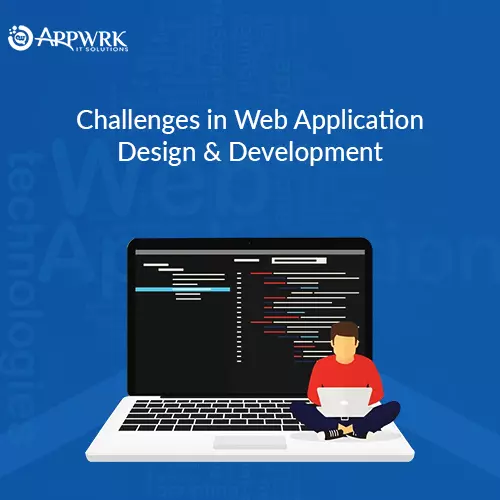Ruby on Rails vs Django: Which One is Best for Website Development?
In the battle between Ruby on Rails vs Django, it becomes crucial to understand which one is better for your next website development project. Both have gained a great deal of appreciation and popularity in the development industry and continue to shine with their amazing features and advantages.
However, though they have many aspects in common in the programming phase, they still stand against each other differently.
If you’re considering building your website with a cherry-picked yet highly demanding framework, then it’s challenging to pick one over another. Both have revolutionized the web development landscape and are used by renowned web development companies.
But we’ve curated a list of differences between them that could help you make a wise decision.
Keep reading to find out your best website development framework!
Table of contents
Difference Between: Ruby on Rails vs Django
Introduction of Ruby on Rails
Ruby on Rails is a robust web app development framework written in Ruby and released in 2004. It is one of the best frameworks that developers love to use in their development projects. It was considered outdated and dead, but now, it has gained recognition in the market and continues to shine like a star. What has helped it gain appreciation in the market is its convention-over-configuration software design paradigm approach. It unshackled developers from the tedious parts of the coding, freeing them up to concentrate on the logic of the app and the revenue of the business.
Introduction of Django
Django was developed by Simon Willian and Adrian Holovaty in 2005. It is an open-source, server-side, and Python-based web framework that helps in creating scalable web-based projects. In the last few years, it has gained a lot of popularity in the development space. The topmost reason behind it is MTV architectural patterns. It follows this approach and hence, has become one of the potential server-side wave frameworks.
Ruby on Rails vs Django Key Features
- Language
Django uses Python. Ruby on Rails is built using Ruby. Python is one of the best Programming Languages and is known for code’s simplicity. However, Ruby is known for flexibility & its easy-to-understand syntax.
- Architecture
Django follows MVT (Model-View-Template) while Ruby on Rails development follows the convention-over-configuration software design paradigm.
- User Interface
When comparing Ruby on Rails vs Django on the user interface grounds, both are the conquerors. It’s because they’re both built to offer an amazing interface experience. Using both of them, you can design highly functional websites loaded with perfect add-ons and plugins.
- Stability
Ruby on Rails designs innovative and robust applications because it allows developers to reuse the code that eliminates dependencies. Its Configuration Convention technique frees them from further efforts and aid put focus on the app’s features only. As Django uses Python, it follows a more conventional approach, providing stability to the application.
- Installation
Depending on the installation process, Django development is very simple, and hence it takes only a minute to install it fully. But, we can’t say it about ruby on rails. In Ruby on Rails, first, you need to analyze what bundles and Gems are, as they are needed to install Ruby’s packages, and then run the command Gem to install the rails. So, its installation is a time-consuming process.
- Security
Django has won a security feature from Python. Even NASA uses Django, which is great evidence of how to secure & renowned it is. It is backed by middleware, while active files back Ruby on Rails. Django has many tools to safeguard apps from SQL injection, cross-site (XSS) scripting, and other harmful threats. Rub on Rails has open-source libraries like bundler-audit and brakeman and many more to safeguard ROR applications.
- Scalability
No doubt Python’s scalability has been inherited by Django; it still lags a little behind Ruby on Rails. Ruby on Rails has better scalability resulting from its attributes, such as freedom and code flexibility.
- Principles of Development
Development Principles are like the glue that ties the whole web app development process. For example, Django has two famous principles; DRY and Explicit are better than Implicit. It helps developers create easy-to-understand software that many people manage easily. Ruby on Rails, on the other hand, also has two principles. One is DRY, and the other is Convention on Configuration, which implies that you can design an app by simply following conventions rather than making your configurations. Thus, it boosts the pace and effectiveness of the development process.
- Maturity of Platform
Django was first released in 2005. Its recent release, with many new features and improved usability, was released in April 2019. First released in 2003, Ruby on Rails was formally declared as an open-source application in 2004. As the latest version, Rails 6.0, was released in August 2019, it is also continually growing.
- Syntax
The syntax of Ruby is extremely versatile. Well, Ruby on Rails’ benefits can’t always be connected with it. It can cause difficulties and make it more complex for the work to be passed onto other developers as one feature can be done in multiple ways, creating confusion. Whereas, whereas Python claims that there should be only one obvious way to do something, making debugging and understanding the code easier.
Ruby on Rails vs Django Benefits

Benefits of Django
- Scalable and has an effective admin panel
- Highly compatible with different operating systems and databases
- Supports model view controller programming
- Adopt battery included approach
- Easy to customize
- It has the representational state transfer framework
Benefits of Ruby on Rails
- Extremely easy to migrate and modify
- Diverse presets and tools
- Excellent app testing environment
- Application component structure is entirely based on Gems and plugins to allow high function with minimal coding
- Active Ruby On Rails community and developers
The Bottom Line
The battle between Ruby on Rails vs Django frameworks will remain the same in 2025 because it’s too difficult to choose one over another. Both have skyrocketed the website development process and taken the pain of developers in many ways. To make your website gain all you have planned, it’s wiser to choose the one that is suitable for your budget needs.
At APPWRK IT Solutions, we have a talented team of Django and Ruby on Rails developers that provide the ultimate website development services. Our best developers will shred your website development cost to half and help you enjoy unlimited benefits.
About The Author







 Free Quote
Free Quote
















































